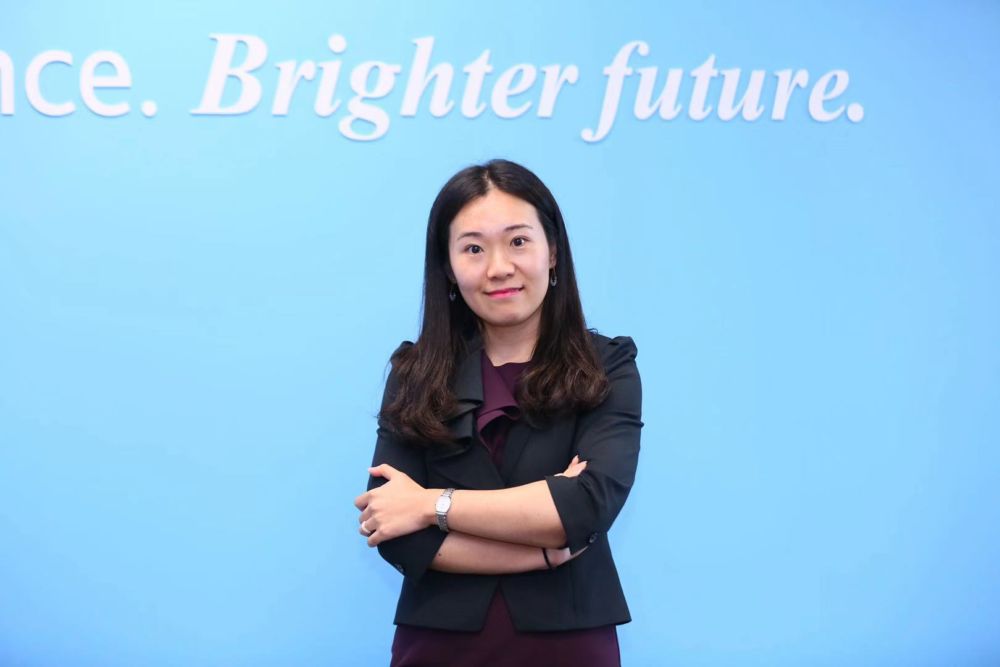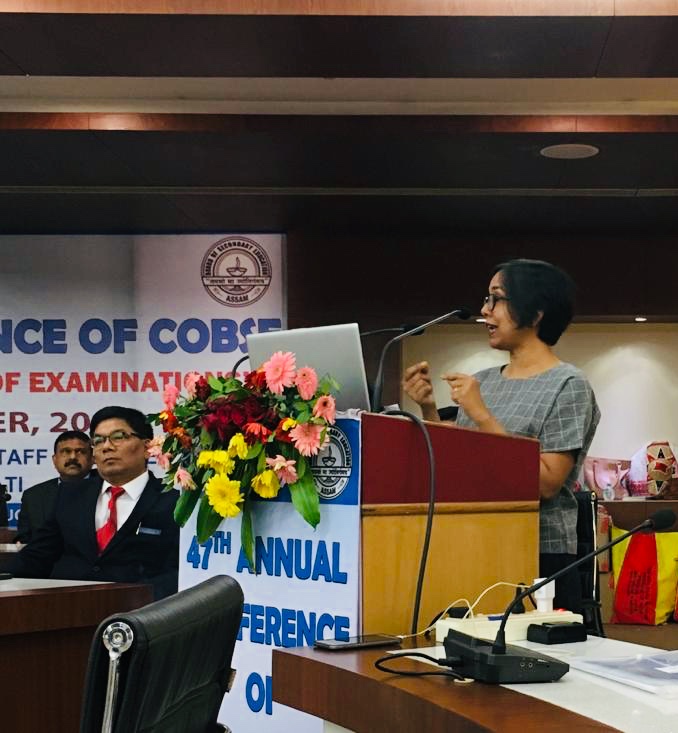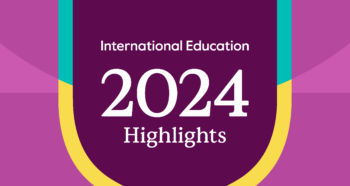According to our latest student destinations survey, it is estimated that 93% of Cambridge International A Level students progressed to university in 2018.
An estimated 54% of these students progressed to a university in their own country, while the remaining 39% went to a university in another country. Moreover, our data shows that ever-increasing numbers of Cambridge International students are getting into top-ranked universities. In 2018, 53% of Cambridge students went on to attend a top-500 university, compared to 44% in 2017.
Cambridge curricula are designed to prepare students to achieve academically at university.
However, progression is not just about ‘getting in’, it’s also about ‘getting on’. We also design our programmes to give students the additional skills that embody ‘college readiness’ – the ability to do well as an undergraduate.
With Cambridge International students going to university in so many different countries, I was prompted to ask the question: ‘Do these skills vary from country to country?’ I asked the Cambridge International team of recognition managers how universities in their regions assess college readiness skills.
Chantel Reynolds – US

In the US, purely ‘academic’ skills are now considered only one indicator of college readiness. Many institutions also look for demonstrations of ‘grit’ – the ability to persist despite obstacles and setbacks. They also look for evidence of the ability to manage learning independently.
US universities will also consider the rigour of the high school experience – the kind of courses the student took, how challenging they were, and if the student was involved in clubs requiring a high-level commitment. Community work also helps identify a ‘well-rounded’ student.

Cambridge students are valued for their ability to analyse, synthesise, and communicate. Universities appreciate their ability to dig deep into a subject and work collaboratively with others.
US universities actively encourage international students to apply. They appreciate the diversity of background and thought that international students contribute. They look for students who have a high chance of success, and Cambridge International qualifications are a solid indicator in that regard.
Dora Duan – East Asia

In the last few decades, many East Asian countries have undergone educational reform in order to improve on the ‘one exam, one decision’ method of access to higher education. East Asia is moving away from the traditional exam-driven approach, with its focus on memory, math skills, and exam techniques, to a judgement of ability based on more diverse factors. In Hong Kong, for example, and in some top English degree programmes, universities now look for more rounded candidates with experience of extra-curricular activities or independent research, with soft skills such as communication and collaboration, and with proven language ability and global citizenship skills.

Universities like the fact that Cambridge students have a good knowledge of their A Level subjects, a good level of English, and can demonstrate a great interest in the majors they choose.
Roshan Walkerley – UK

University courses in the UK are typically three years in duration, so undergraduate programmes can be very specialist. A good level of subject knowledge is therefore required and the depth of Cambridge International A levels and Cambridge Pre-U, prepares students well for UK higher education.

Universities value pre-university projects that allow learners to work independently, such as the Cambridge International Project Qualification.
UK universities tend to focus their admissions criteria on the grades students have achieved in high schools and are predicted to achieve in their final exams. Some universities do value qualifications such as music examinations or extra and co-curricular activities, but these typically enhance an application, rather than replacing the need to meet the academic requirements.
Cambridge International qualifications are accepted on an equivalent basis to UK GCSE and A Levels. Universities know that Cambridge International learners have the breadth and depth required for success at university. Most UK universities are global communities. Students from outside of the UK make up approximately 20% of the cohort; the second largest by proportion of any country (only Australia has a higher percentage).
Rhona Armour – Europe
Universities in Europe generally look for subjects relevant to the applicant’s chosen degree course. Exam results will also be considered in the case of competitive, popular courses. To study in Germany for instance, a student requires four academic subjects, three of which must be at A Level standard. The choice of subjects must include a language plus mathematics or a natural science.

In addition to subjects and grades, there may be additional tests and/or interviews. Universities in Europe generally expect their students to be independent, both financially and in terms of coping with the demands of their chosen course. Good research and essay writing skills are considered very important.
Joleen Rugg- South Africa

South Africa is a popular university destination for all neighbouring countries and competition for places can be tough. Students holding Cambridge qualifications are required to obtain a certificate of exemption, meaning that they are exempt from taking the South African Senior Certificate exams.
Universities in South Africa often use an admission point score (APS) to set minimum entry requirements. In addition to APS and grades, some faculties use interviews and admission tests to evaluate students beyond their results.

Students may also be asked to take the National Benchmark Tests (NBT), which measure academic readiness for university. They are used by many universities in South Africa to help them interpret school leaving results. Some institutions use the NBTs for admission and others use them to determine whether a student will need extra academic support during their studies. Finally, personal reports and questionnaires are very important when applying to Health Science faculties.
Shamim Chowdhury – South Asia

Most universities in South Asia rely solely on exam results, be it entrance exams or school-leaving exams. However, there are new private universities that offer liberal arts and sciences and that are looking for evidence of critical thinking, intellectual curiosity, academic rigour, research and writing skills and teamwork. The trend of using a holistic admissions process is becoming increasingly popular in India.

Growing numbers of international students are applying for undergraduate degree programmes in South Asia. Such students are exempted from taking entrance tests and are admitted on the basis of their high school performance.
Kamal Mamat – South East Asian Pacific

Universities in the SEAP region focus mainly on the robustness of the qualifications, as well as the quality of the exam board. Australia is a key destination for Cambridge students in our region, but Malaysia is becoming increasingly popular, thanks to the quality of its institutions and the cost of study.

Universities look for students to have achieved good grades, but for more selective courses they may also require them to undergo an interview process and have specific language abilities. Universities in Australia are typically very favourable to Cambridge International students, specifically due to the depth of their content knowledge.





